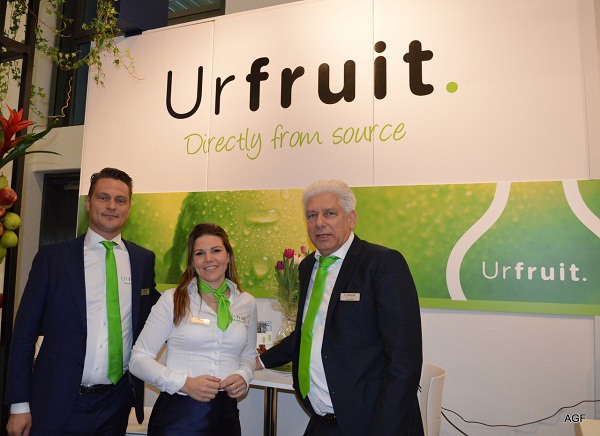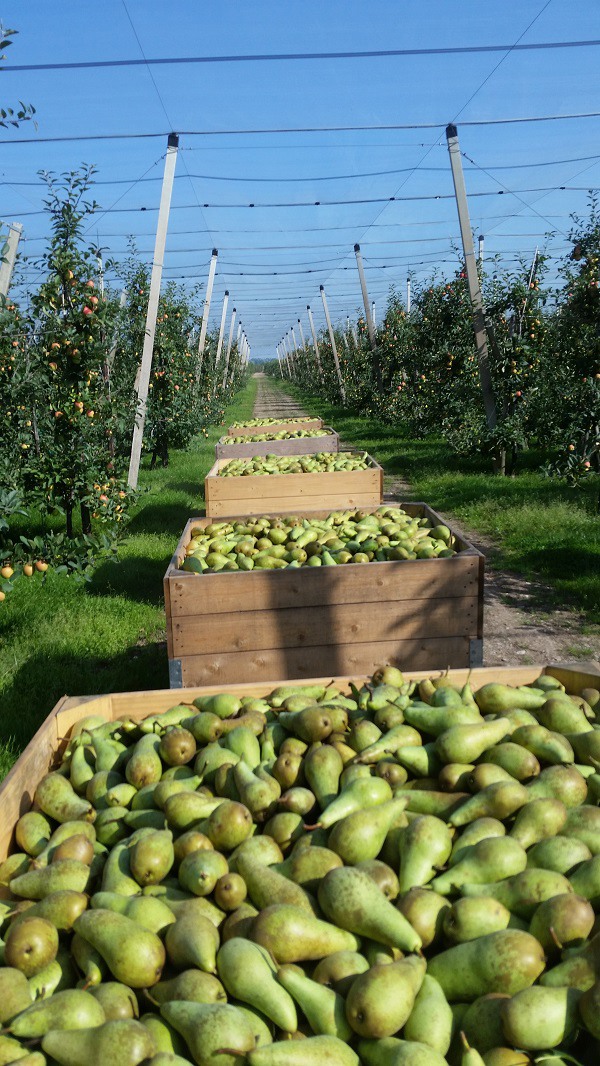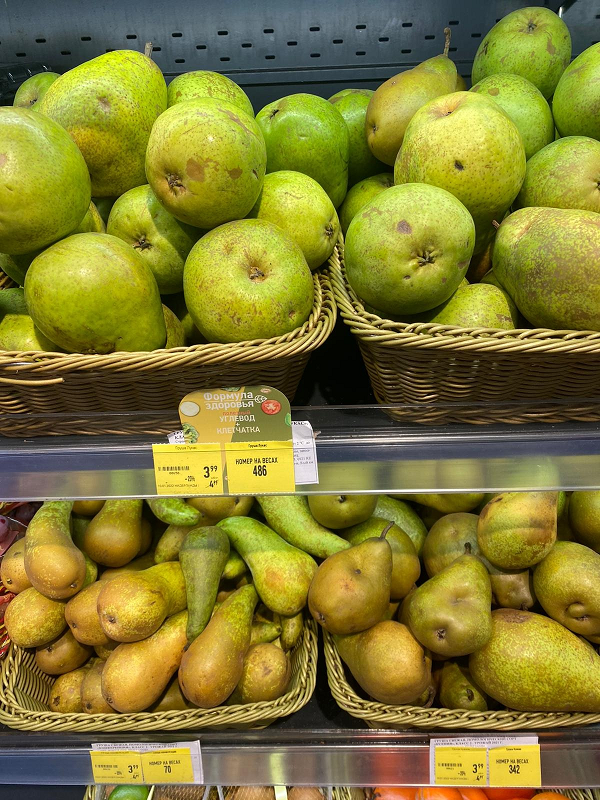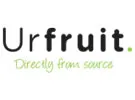On January 1st, 2022, Belarus imposed a six-month ban on food imports from the EU, including fruit and vegetables. It is yet another, albeit smaller, blow to some Dutch and Belgian pear growers and traders. It follows Russia's ongoing trade boycott implemented on August 7th, 2014.

Urfruit team with Mark Vernooij (l)
That was in response to the European Union's sanctions against Moscow following the annexation of Ukraine's Crimea. Urfruit, in the Netherlands, used to be 80% dependent on the Russian market for pear exports. Now, Belarus, too, is no longer an export destination, so this top fruit grower must, once again, go looking for alternative markets.
Client spread
"Fortunately, this time, we're not talking huge volumes," says Mark Vernooij. "We were doing a load or two a week of pears, all for domestic Belarusian consumption. So no re-exporting. But there's still a chance that if shortages arise on the Belarusian market, we could re-export some via an exemption clause. We're hoping that happens."
"Nevertheless, unlike seven years ago, we're now well safeguarded against this kind of situation by having a widely geographically-spread customer base. We have many customers all over Europe. But, of course, it's still annoying, especially because it's not our industry's fault. It has nothing to do with our product or cultivation method. It's a purely political issue, just like in 2014 with Russia."

Especially for Class II fruit, a new sales market must be found. Spanish persimmon growers, too, know this. Due to pest pressure, they have more inferior quality fruit and cannot now sell them on their usual market: Belarus. "Yes, that also applies somewhat to our pears. Not so much for the Conference since those Class II usually sell. But Belarus was always a nice reserve destination for our Lucas pears. Things were already a little difficult with those pears."
Belarusian pear imports
In 2020, Belarusian customs stats show that the Netherlands exported about 13,000 tons of pears to that country. Belgium sent 32,000 tons, and Turkey, more than 26,000 tons. Poland, however, led the way with 34,000 tons. Dutch apple exports suffered less from the new ban because the enormous quantities of cheaper Polish apples left Dutch fruit no room in that market. Now that Poland is also no longer allowed to export top fruit to neighboring Belarus, there are opportunities for new, emerging cultivation countries, especially Turkey.
Compensation?
"We haven't yet heard anything about any compensation schemes," says Mark with a sigh. "But when the Russian boycott happened, we didn't get any compensation. Our industry is the victim of geopolitical issues occurring far above our heads. It's not fair, but it's true. We'll have to concentrate even more on European fixed lines for long programs. Because there's much ground to be gained in pear consumption in Europe."

"And there's certainly a lot more profit to be made than on the distant destinations. That can be fun and challenging but also quite risky. For example, some Belgian and Polish companies have a few outstanding invoices here and there in North Africa that will never be paid. Exporting to China also seems nice, but it's costly. If you can't send huge volumes, it's not profitable for a small company like us. That's more for the market's big players."
Russia
If Russia's market ever became accessible again, Mark doubts that sales will ever reach previous levels again. "I think it'll be impossible. It's not that everything we built up then is gone, but it's an illusion to think that if the Russian market reopens today, it'll be business as usual right away. There have, of course, been competitors, like Turkey, on that market. But, Russia, itself, too, has invested in top fruit," concludes Mark, who has already fully switched to other European markets.
Mark Vernooij
m.vernooij@urfruit.nl  Urfruit
Urfruit
Marketing 45
6921 RE Duiven
T. +31 (0)575 472 473
www.urfruit.nl
